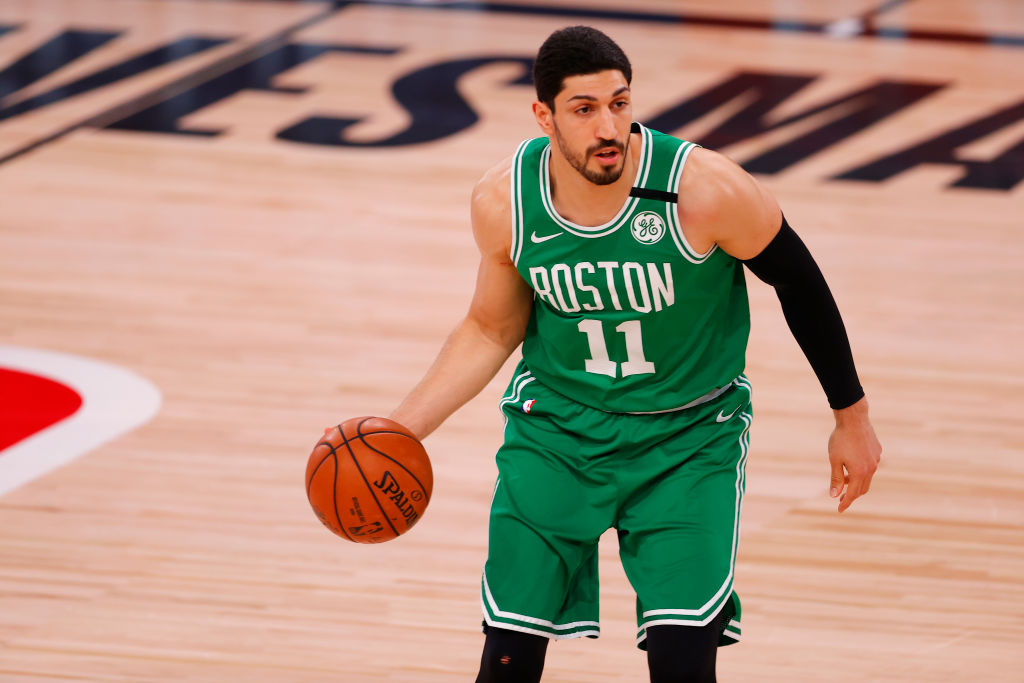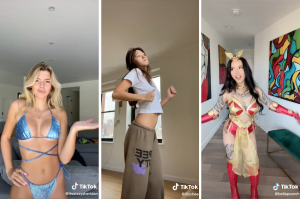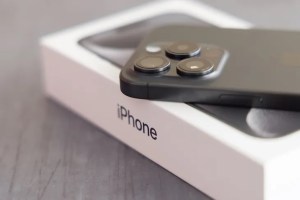It sure looks like basketball player Enes Kanter Freedom has been blackballed by the NBA for his candor over the league’s cozy relationship with China — concentration camps filled with ethnic Uighurs in Xinjiang and all.
Freedom, who earlier this year began wearing human rights messages on his game shoes illustrated by Chinese dissident artist Badiucao, became a vocal critic of the NBA’s cherrypicking of human rights issues. That included directly targeting the league’s star and arguably most recognizable athlete on the planet, LeBron James.
In 2019, after Houston Rockets general manager Daryl Morey spoke out against China and in support of the pro-democracy movement in Hong Kong in a series of now-deleted tweets, China suspended all NBA broadcasts within its borders. League commissioner Adam Silver at the time defended Morey, even as players like James called the comments uneducated.
CCTV and Tencent Media, the official state digital media company of China, said in a statement, “We are strongly dissatisfied and we oppose Silver’s claim to support Morey’s right of free expression. We believe that any speech that challenges national sovereignty and social stability is not within the scope of freedom of speech.” Since 2009, Tencent Media has been a digital partner of the NBA with China, in a deal worth about $1 billion and signed through 2025.
In October of last year, Enes Kanter Freedom urged his fellow players to boycott the Beijing Olympics, and labeled Chinese President Xi Jinping a brutal dictator. Kanter Freedom at the time was a center for the Boston Celtics. He continued to vocally protest until February of this year when he was unceremoniously cut, a move he claimed to have predicted after being traded, ironically, to the Houston Rockets. Freedom saw his playing time dramatically reduced as his protests became louder and gained traction in national media.
Is it possible that the NBA finds Kanter’s skills to be overrated? It’s possible, but the NBA’s recent actions make that explanation less believable. This week, as originally reported in the New York Times, the league announced that games have resumed airing in China, with the first game this past Tuesday between the Utah Jazz and the Los Angeles Clippers. According to the Times, “the broadcast was the start of the full return of the NBA to China’s airwaves” and the “broadcasting of NBA games on Chinese television opens up a revenue stream of hundreds of millions of dollars a year for the league.”
So to simplify: Kanter Freedom begins his vocal opposition to the league’s ongoing relationship with China in October of last year. In February of this year, he is cut from the Houston Rockets and not picked up by another team. In March, the NBA resumes what appears to be a conditional relationship with China to air its games and continue to have its stars participate in the Chinese market by operating basketball camps, such as LeBron James does, while refusing to criticize the human rights abuses carried out against Hong Kong and the ethnic Uighurs.
“It’s saddening! The minute I’m out of the league, the NBA comes crawling back to China,” Kanter Freedom told The Spectator. “When Adam Silver and I spoke on the phone, he claimed he ‘didn’t know the NBA/Celtics games were banned in China.’ Business as usual.”
“You’re telling me I’m NOT being blackballed?” Kanter Freedom added.
LeBron James, of course, is an outspoken critic of police brutality on American soil, where he knows his bottom line and brand won’t be affected. It’s pure moral cowardice, something Kanter Freedom, who is by no means the face of the professional league, has not backed down from pointing out.
Some have compared Kanter’s blackballing to that of backup quarterback Colin Kaepernick, who took to kneeling during the national anthem and comparing the police to pigs and the NFL to a group of auction slavers. And while the argument could be made that both Kaepernick and Kanter Freedom offer less talented diminishing returns for any team that would sign them and that their activism would be a headache and a distraction, that’s where the comparison ends. Kaepernick has enjoyed rampant mainstream media support, and has signed multimillion dollar development contracts with both Netflix and Nike, a corporation that has openly lobbied against proposed anti-slave labor legislation.
When our media showers Kanter Freedom with the kind of approving attention that Kaepernick has received, when he gets millions of dollars in endorsements despite his obvious blackballing, then perhaps that comparison can be made. For now, the timing of this all stinks for the NBA.


















